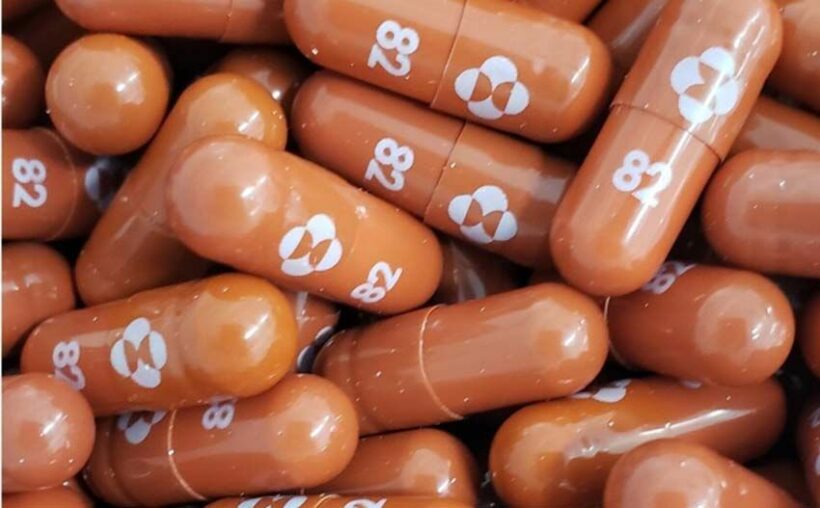Thailand to order new anti-viral “magic” pill for Covid-19 treatment

Thailand is joining the queue to get its hands on a new Covid-19 treatment from pharmaceutical giant, Merck. The new treatment, in pill form, has not yet been approved by the US Food and Drug Administration or by Thailand’s equivalent. However, after falling behind other countries in vaccine procurement, officials now seem anxious to get in there quickly, with reports that Thailand plans to purchase 200,000 courses of the new treatment. Media reports say the US government plans to procure 1.7 million treatment courses, at a cost of US$700 each.
Interim trials show that the new drug could reduce the chance of death or hospitalisation with Covid-19 by 50% in those most at risk of severe symptoms. It’s understood that Merck and its partner, Ridgeback Biotherapeutics, plan to apply for FDA emergency use approval as soon as possible. If granted, the pill would become the world’s first oral anti-viral drug for the treatment of Covid-19. Molnupiravir works by creating errors in the genetic code of the virus, thereby reducing viral load in Covid-19 patients and lessening their chances of developing severe symptoms.
Following reports that drugs in the same class have been linked to birth defects in animals, the manufacturer says that similar studies of Molnupiravir, which was given in higher doses and for longer, show that it has no effect on mammalian DNA. Phase 3 trials have shown the treatment to work against all mutations, including the highly-contagious Delta variant, which has been behind most of the recent deaths and hospitalisations around the world.
On the stock exchange, shares in Merck rallied following the news, while shares in Atea Pharmaceuticals, developers of a similar treatment, rose by over 21%. Meanwhile, shares in some vaccine manufacturers fell. It’s understood that both Pfizer and the Swiss healthcare and pharmaceutical giant, Roche, are also working on an anti-viral pill treatment for Covid-19.
To date, the virus has killed nearly 4.9 million people around the world, with 700,000 of them in the US. In Thailand, 3, 243 are in serious or critical condition, with 701 on ventilators.
Latest Thailand News
Follow The Thaiger on Google News:
























